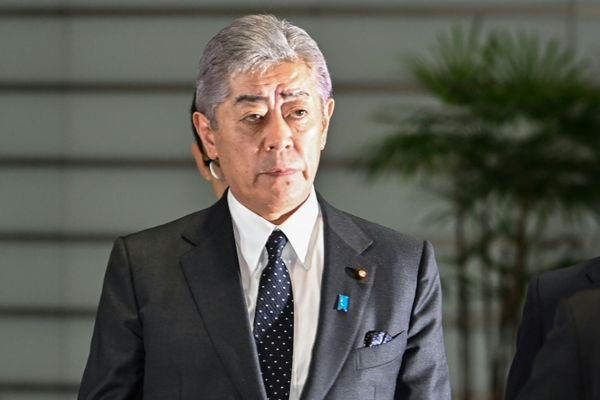
Few political leaders get to leave on their own terms. But Daniel Andrews is one of them, and in high style.
After reversing what now looks like the hiccup that was John Brumby’s 2010 loss, in 2014 he went on to completely dominate Victoria, to the point where the idea of the Victorian opposition even being competitive seems risible. Andrews ripped the heart out of the Victorian Liberals in 2018, and then did it again — despite a swing against him — in 2022.
With Andrews building on the legacy of John Cain and Steve Bracks, by 2026 Labor will have run Victoria for three-quarters of the past 44 years.
Critics — and there are plenty, including Crikey — might argue his dominance was exaggerated by a spectacularly inept Liberal Party divided by an ongoing war between moderate traditional Liberals and Christian extremists whose social views would have been out of touch with Melbourne in 1923, let alone now. But Andrews helped make them unelectable with a ruthless political style, a centralised command-and-control management via his office, and an attitude to the media taken straight from Jeff Kennett, who famously heaved sand at journalists.
That conservatives couldn’t land a punch on Andrews for nearly a decade enraged them, and drove the Coalition’s right-wing cheerleaders at News Corp to distraction. Increasingly frustrated, eventually the Liberals and News Corp openly embraced the kind of lurid conspiracy theories previously the province of far-right extremists. The 2022 election campaign was marked by ferocious News Corp and Liberal attacks on Andrews, with independent MPs and candidates joining in to call for Andrews’ execution. All it did was enhance his reputation as the target of Trump-style political tactics, and convince voters the Liberals — and the Victorian press gallery — were obsessed with Andrews at the expense of real issues.
The rage against Andrews was fuelled by his hardline, lockdown-centric tactics in response to the COVID pandemic. Even now, big business and its media cheerleaders at The Australian Financial Review despise him for being so willing to shut the state down. But none of it hurt him. In fact, Andrews’ willingness to place management of the pandemic ahead of the interests of business cannily anticipated where the community was moving.
After three decades of neoliberal elevation of the interests of corporations to primacy in public policymaking, Andrews unapologetically went directly against the demands of business. From the perspective of 2023 — marked by PwC, Qantas and profit-fuelled inflation — this rejection of the diktats of the business community and its media arms looks prescient indeed.
That’s what enraged the right so much about Andrews — that far from being “Dictator Dan” or some out-of-touch leftwinger, he effectively reflected the electorate. Even in 2022, in the face of a swing against him, Andrews steered Labor to a 55% two-party-preferred result. If even a skerrick of the News Corp and Liberal accusations against Andrews were true, such a result should have been impossible.
And economically, Andrews’ refusal to kowtow to business never produced the apocalyptic results business and the media constantly warned about. Andrews’ fiscal policies might have left a large debt, but today Victoria has the lowest unemployment rate of any state and a much higher participation rate than NSW, along with much less interstate emigration. So much for alienating business.
The other great source of right-wing rage was Andrews’ progressive social agenda in the form of a ground-breaking Treaty with First Peoples, voluntary euthanasia, an injecting room and — late but better late than never — a huge investment in social housing in 2020.
A crucial part of Andrews’ political management was an ability to evade responsibility for the seemingly innumerable scandals that occurred within his party or his government while he was in power. Scandals and stuff-ups seemed to routinely occur around Andrews, but somehow never quite involve him.
The notorious decision to use private guards in quarantine hotels at the start of the pandemic seemed to have made itself; rampant branch stacking involving misuse of public resources by ministers repeatedly occurred without Andrews receiving any blame; Andrews’ too-close relationship with Crown casino escaped censure when a royal commission uncovered massive misconduct within that company and near-total regulatory failure. And that’s to say nothing of the red shirts scandal, or the shameful attempt to hand union mates more than $1 million for a “training course” that involved Andrews’ own office.
The standard of conduct — not to mention accountability — in Andrews’ government was appalling, but he floated above it all, even when grilled and criticised by the state’s underpowered anti-corruption body. If Andrews was the Labor leader, his leadership seemed to turn into vapour any time something went wrong.
All of which is to say Andrews was much worse than his loyal advocates insist, but far better than the diehard haters at News Corp or The Australian Financial Review would ever give him credit for. And he understood his electorate in a way that the latter will simply never get.
Are you with the haters or the lovers of Dictator Dan? Let us know by writing to letters@crikey.com.au. Please include your full name to be considered for publication. We reserve the right to edit for length and clarity.







